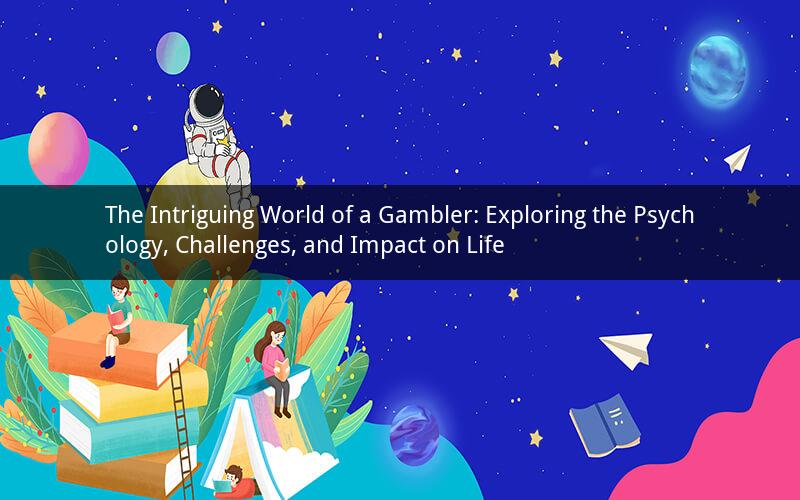
In the captivating realm of gambling, there exists a complex figure known as "a gambler." This individual embodies a mixture of excitement, risk-taking, and often, a dangerous addiction. This article delves into the world of a gambler, exploring the psychology behind their actions, the challenges they face, and the profound impact gambling can have on their lives.
1. The Psychology of a Gambler
Gambling is an activity that appeals to the human brain's reward system. When a gambler wins, their brain releases dopamine, a neurotransmitter responsible for feelings of pleasure and satisfaction. This reward reinforces the behavior, making it more likely for the individual to continue gambling. However, the psychological aspects of gambling extend beyond the immediate pleasure of winning.
a. The thrill of risk-taking: Gamblers often seek the thrill and excitement that comes with taking risks. This thrill can be addictive, as the individual craves the adrenaline rush that accompanies gambling.
b. The desire for control: Many gamblers believe they can control the outcome of the game. This illusion of control can lead to an increased risk of addiction, as the individual continues to chase the feeling of being in control.
c. Emotional regulation: Some gamblers use gambling as a means of coping with stress, anxiety, or depression. The temporary relief they experience from their emotions can create a cycle of dependency.
2. The Challenges Faced by Gamblers
The path of a gambler is fraught with challenges. These challenges can affect not only their personal lives but also their relationships, careers, and overall well-being.
a. Financial consequences: One of the most significant challenges faced by gamblers is the potential for financial ruin. The allure of winning big can lead to excessive spending, resulting in debt and financial instability.
b. Relationship issues: Gambling can strain relationships, as it often requires the individual to prioritize their addiction over their loved ones. Jealousy, secrecy, and financial strain can lead to conflict and emotional turmoil.
c. Mental health: Gamblers may experience a range of mental health issues, including depression, anxiety, and substance abuse. The stress of gambling can exacerbate these conditions, making it difficult for the individual to break the cycle of addiction.
3. The Impact of Gambling on Life
The consequences of gambling addiction can be profound, affecting every aspect of a person's life.
a. Health issues: Chronic stress, anxiety, and depression can lead to a variety of health problems, including heart disease, diabetes, and gastrointestinal issues.
b. Loss of employment: Financial instability and the need to support their addiction can lead to the loss of employment, making it difficult for gamblers to provide for themselves and their families.
c. Legal problems: Some gamblers may engage in illegal activities to fund their addiction, such as theft or fraud. This can result in legal consequences that further complicate their lives.
Frequently Asked Questions:
Q1: Can a person overcome their gambling addiction?
A1: Yes, it is possible for individuals to overcome their gambling addiction. This process requires determination, support from loved ones, and often, professional help from therapists or support groups.
Q2: Is there a genetic component to gambling addiction?
A2: Yes, research suggests that there is a genetic component to gambling addiction. However, genetics alone do not determine whether an individual will develop an addiction; environmental and psychological factors also play a significant role.
Q3: How can I help someone who is struggling with a gambling addiction?
A3: Offering support and understanding is crucial. Encourage the individual to seek professional help, attend support groups, and communicate your concerns without judgment. It is also important to take care of yourself while supporting the person with the addiction.
Q4: Can gambling addiction be treated with medication?
A4: While there is no specific medication to cure gambling addiction, some medications may help manage symptoms of underlying mental health issues, such as depression or anxiety. It is essential to consult a healthcare professional for appropriate treatment options.
Q5: Is it possible to gamble responsibly?
A5: It is challenging to gamble responsibly for those with a predisposition to addiction. However, individuals can minimize the risk of developing an addiction by setting limits, avoiding high-risk gambling activities, and seeking support when needed.